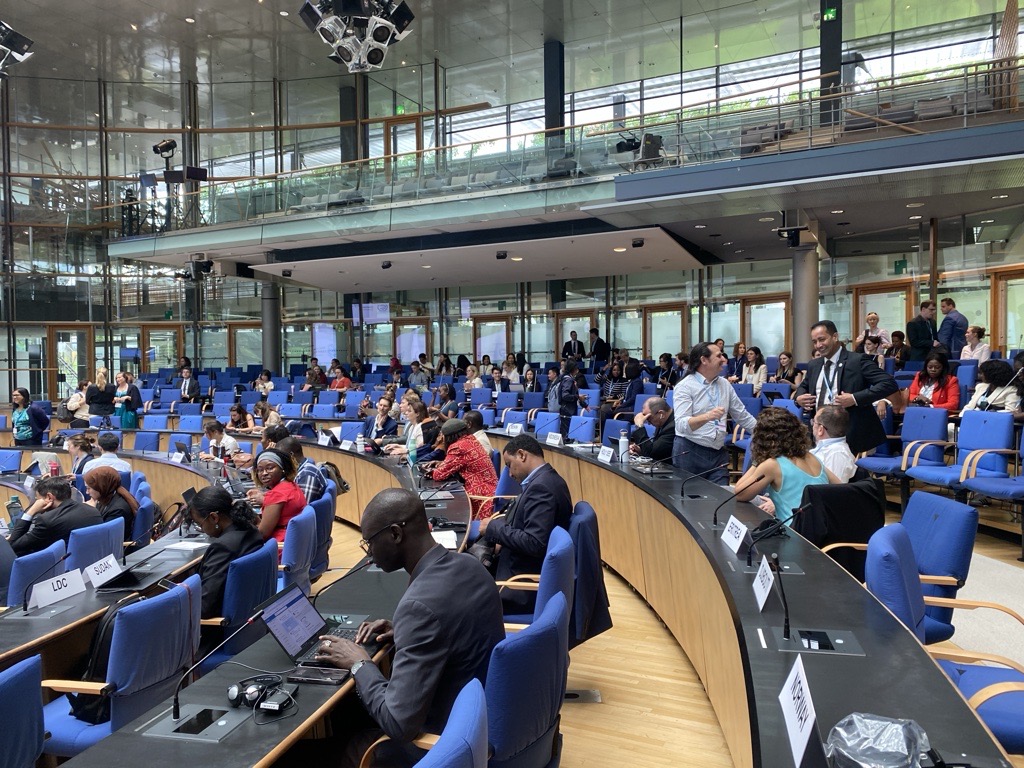Bonn climate talks end in disappointment as finance deadlock persists
BONN — The mid-year UN climate talks in Bonn have ended in disappointment, with climate finance still a key stumbling block. Intended to pave the way toward meaningful outcomes at COP30 in Brazil, the conference shone for lack of concrete action on critical issues such as measuring adaptation, transitioning away from fossil fuels, and delivering fair and accessible climate finance.
The conference’s slow start over the agenda fight underscored persistent fault lines between developed and developing countries. Under Article 9.1 of the Paris Agreement, wealthy nations are obligated to provide climate finance to support developing countries’ efforts to adapt to and mitigate the impacts of the climate crisis. Yet, once again, those commitments remain unmet as developed countries refused to discuss the article.
Developing countries and civil society organizations, including CARE International, are united in demanding that climate finance be public, additional to existing official development assistance (ODA), and provided in the form of grants—not loans that would deepen the debt burdens of vulnerable nations.
Marlene Achoki, policy lead at the CARE Climate Justice Center
“It should be logical that adaptation negotiations would be the first to land an outcome—after all, they’re about identifying and reducing climate risks and saving lives. Yet we are deeply disillusioned by the lack of progress—and the outright delay—across adaptation negotiation tracks. The persistent refusal to include language on adaptation finance and Means of Implementation (MoI) in the Global Goal on Adaptation framework risks leaving us with a hollow shell: a framework in name only, with no means to act. Adaptation finance is what transforms promises into real-world action—supporting vulnerable communities as they confront the climate crisis head-on. Every day, that crisis unfolds before our eyes, and every day, women and girls bear the heaviest burden. Adaptation is not a favour. It is not a business opportunity. It is about saving lives—especially the lives of those most at risk.”
John Nordbo, senior climate advisor, CARE Denmark
“Developed countries stubbornly insist on focusing on private, or blended, finance in the talks on climate finance. That is not the solution to the climate crisis in developing countries—it’s a trap. Forcing vulnerable nations to rely on profit-driven financing models risks deepening debt, distorting national priorities, and turning climate action into a business opportunity for the wealthy. Climate finance for adaptation and loss and damage must be public, grant-based, and rooted in equity—not market logic. Developing countries should not be made to pay for a crisis they did not cause.”
Obed Koringo, climate advisor, CARE Denmark
“Loss and Damage was expected to be a key focus at SB62 in Bonn, especially after COP29 in Baku failed to deliver on long-term finance. Instead, it was sidelined once again, with no concrete outcome. While the Fund was established with high expectations, its operationalization has moved at a snail’s pace. Pledges remain far below what’s needed, and meaningful support is still out of reach for those already suffering. The fact that Loss and Damage is absent from the Brazilian COP30 presidency’s priorities sends a troubling signal about the lack of political will. Delivering long-term, adequate finance is not just solidarity—it’s a moral and practical imperative that must be central to the Baku–Belém Roadmap and at the heart of COP30.”
Kerime van Opijnen, Policy advisor on gender equality and climate justice, CARE Netherlands
“The progress on the draft text for the new Gender Action Plan (GAP), set for adoption in Belém, is encouraging. The workshops were constructive and collaborative, resulting in a strong base text. It’s especially positive to see explicit references to the protection of Women Environmental and Human Rights Defenders and women of African descent—groups leading the fight for climate justice and facing heightened risks. The recognition of gender-based violence as a growing threat amid the climate crisis is also welcome. Still, all parties must resist any rollback of human rights language or dilution of the GAP’s ambition and inclusivity.”
====
Press contact:
Monica Ellena – CARE Climate Justice Center – Global Communication Lead
ellena@careinternational.org
Note to Editors
- CARE International’s climate change experts are available for interviews.
- CARE’s work on climate change has the most vulnerable at the center: the effects of the climate crisis disproportionately affect marginalised communities and groups, particularly women and girls, those who are least responsible for causing it.
- Hollow Commitments 2025, a new report by CARE Denmark on wealthy countries’ failure to live up to their climate finance commitments is available here. The press release with key findings can be found here.
About CARE International
Founded in 1945 with the creation of the CARE Package®, CARE International is a leading humanitarian organization fighting global poverty. In 2002, CARE Bangladesh launched the first specific community-based climate adaptation project, aimed at reducing vulnerability to climate change-related disasters. Since then, our engagement has grown and in 2024, CARE International and its partners implemented 273 projects across 61 countries, reaching 4.5 million poor and marginalized people—particularly women and girls—to strengthen their resilience and adaptive capacities to the effects of climate change.
About CARE Climate Justice Center
The CARE Climate Justice Center (CJC) leads and coordinates the integration of climate justice and resilience across CARE International’s development and humanitarian work. The CJC is an initiative powered by CARE Denmark, CARE France, CARE Germany, CARE Netherlands, and CARE International UK.To learn more, visit www.careclimatechange.org
CARE’s Full Press Release
Bonn climate talks end in disappointment as finance deadlock persists
